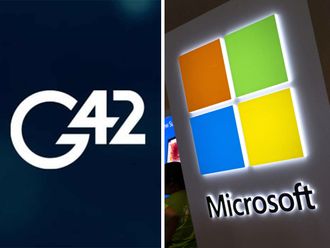London: Britain on Thursday said new powers to punish rigging of Libor interest rates with criminal sanctions should be extended for seven major benchmarks, drawing in oil, gold and currency markets.
“The government has today launched a consultation on extending the new legislation the government put in place to regulate Libor to cover further benchmarks in the foreign exchange, fixed income and commodity markets,” said a statement from the Treasury.
The government said it wished to extend the legislation to the London Gold Fixing and the LMBA Silver Price, which determine the price of gold and silver in the London market.
Also targeted is the ICE Brent futures contract, “which acts as the crude oil futures market’s principal financial benchmark”, the Treasury said.
The government wants to extend the legislation to cover also the WM/Reuters 4pm London Fix, or “dominant global foreign exchange benchmark” and the ISDAFix, described as the “principal global benchmark for swap rates and spreads for interest rate swap transactions”.
The two other markets mentioned are the Sterling Overnight Index Average (SONIA) and the Repurchase Overnight Index Average (RONIA), which both serve as reference rates for overnight index swaps.
“Ensuring that the key rates that underpin financial markets are robust, and that anyone who seeks to manipulate them is subject to the full force of the law is vital,” Economic Secretary to the Treasury Andrea Leadsom said in the statement.
“That’s why the government is determined to deal with abuses, tackle the unacceptable behaviour of the few and ensure that markets are fair for the many who depend on them.”
The government, working alongside the Bank of England and Britain’s financial regulators, said it intends to have the new regime for the designated benchmarks in place by the end of the year.
Britain had announced in June its intention to punish the manipulation of key financial benchmarks with criminal sanctions. On Thursday it spelt out which markets would be targeted.
The proposals appear as a number of banks worldwide are being probed over potential rigging of the foreign exchange market. This comes meanwhile after some traders have been found guilty of manipulating the interbank Libor interest rate. Britain had already threatened prison for those found guilty of rigging Libor.
The Libor scandal erupted two years ago when British bank Barclays was fined #290 million ($473 million, 371 million euros) by British and US regulators for attempted manipulation of Libor and Euribor interbank rates between 2005 and 2009. Euribor is the Eurozone equivalent of Libor.
The London Interbank Offered Rate, or Libor, is a flagship instrument used all over the world, affecting what banks, businesses and individuals pay to borrow money.
Other banks have meanwhile faced far bigger fines than Barclays over Libor, notably Swiss lender UBS which was ordered to pay a penalty of $1.5 billion.












